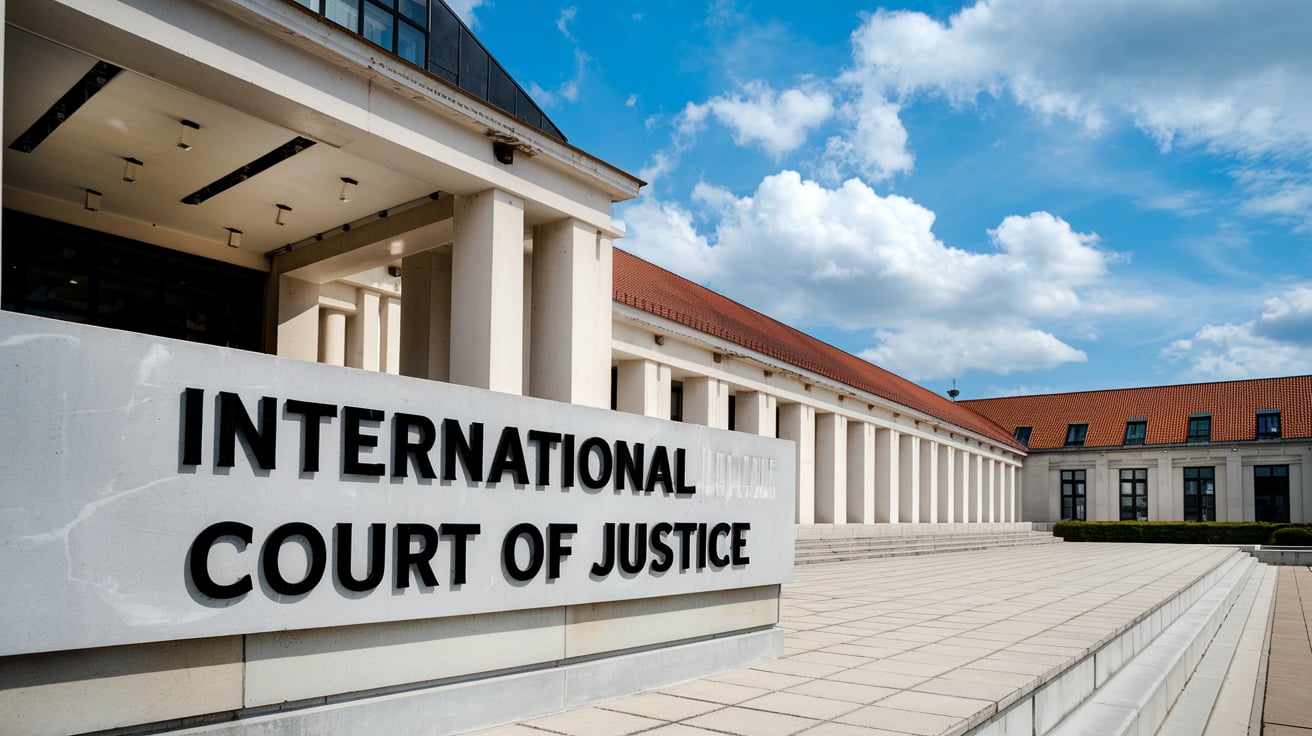The Purpose of the International Court of Justice (ICJ): An Insight with Case Law and Solutions
The International Court of Justice (ICJ), established in 1945 under the Charter of the United Nations, is the principal judicial organ of the UN. It plays a pivotal role in maintaining international peace and security through the application of international law. Located in The Hague, Netherlands, the ICJ addresses disputes between states and provides advisory opinions on legal questions. This article explores the ICJ’s purpose, highlights notable case law, and offers insights into its effectiveness and challenges.
Purpose of the ICJ
The ICJ’s primary objectives are:
- Settling Disputes Between States The ICJ resolves legal disputes submitted by states, ensuring that international law governs state interactions. These disputes often involve matters like territorial boundaries, maritime zones, diplomatic relations, and treaty obligations.
- Providing Advisory Opinions The ICJ offers non-binding legal opinions on issues referred by UN organs or specialized agencies. These opinions clarify legal questions, guide international organizations, and contribute to the development of international law.
Jurisdiction and Authority
The ICJ has jurisdiction in two types of cases:
- Contentious Cases: These involve disputes between states that consent to the Court’s jurisdiction. Its rulings in such cases are binding.
- Advisory Proceedings: These involve requests for legal opinions on questions posed by international bodies. Although advisory opinions are non-binding, they hold significant influence.
Notable Case Law
- Corfu Channel Case (United Kingdom v. Albania, 1949) This was one of the ICJ’s earliest cases. The United Kingdom accused Albania of violating international law after British warships struck mines in the Corfu Channel. The ICJ ruled in favor of the UK, establishing principles on state responsibility for harm caused in their territory.
- Nicaragua v. United States (1986) In this landmark case, Nicaragua accused the United States of supporting Contra rebels and mining its harbors in violation of international law. The ICJ ruled in favor of Nicaragua, emphasizing the prohibition of the use of force and respect for state sovereignty.
- Maritime Delimitation in the Indian Ocean (Somalia v. Kenya, 2021) This recent case involved a maritime boundary dispute. The ICJ’s ruling adjusted the boundary to equitably reflect both nations’ rights under international law, showcasing the ICJ’s role in resolving contemporary issues.
Solutions and Recommendations
While the ICJ has made significant contributions to international law, it faces challenges such as limited jurisdiction and reliance on state consent. To enhance its effectiveness:
- Encouraging Universal Jurisdiction: States should be encouraged to accept the ICJ’s compulsory jurisdiction, ensuring broader access to justice.
- Strengthening Enforcement Mechanisms: The UN Security Council should play a more proactive role in enforcing ICJ rulings, reducing instances of non-compliance.
- Promoting Alternative Dispute Resolution: The ICJ could integrate mediation or arbitration services to resolve disputes more flexibly.
- Increasing Awareness: Raising awareness about the ICJ’s role and significance can build trust and encourage states to utilize its services.
Conclusion
The ICJ remains a cornerstone of the international legal system, fostering peaceful dispute resolution and contributing to the development of international law. While challenges persist, reforms and increased cooperation among states can enhance its role in ensuring global justice. By upholding its core principles, the ICJ continues to be a beacon of hope for maintaining international order and harmony.










